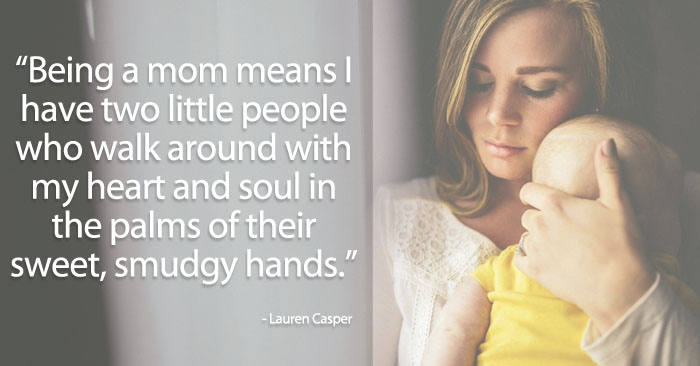Motherhood brings with it a torrent of emotions. When you see your baby’s face for the first time, can you feel joy, fear, desire?You just met the person who will probably be the center of your life from now on and still don’t know exactly how you feel about them.
At the endocrine level, hormones are responsible for doing their job, and we may experience what is called baby blues or mild postpartum depression in the first few weeks after delivery.
- Increases the release of love hormone.
- Oxytocin.
- He is responsible for our love for our children and the sense of responsibility and protection that invades us every time we look at them.
It should be noted that, psychologically, the great change that represents the arrival of another family member in our lives can lead to the postpartum, also known as quarantine, not to meet the expectations we had.
It seems that we have to be happy and radiant when we give birth and it is certainly a wonderful life experience, but some mothers may not realize it right away, they need time to absorb the experience.
This time is essential to adapt to the new situation, and we must not feel guilty about it, believe that we are not good mothers, let alone allow someone to do so, the support of the couple, family and friends is fundamental during this time.
As we have already mentioned in this article, pregnant women, especially if they are “mothers for the first time”, have unrealistic expectations about motherhood. Our mothers, grandparents, aunts or neighbors are in charge of telling us during the nine months how wonderful it is. is to be a mother and look forward to that moment when she becomes the happiest person in the world.
So you have a baby and you realize that this feeling of euphoria doesn’t happen Are you sad, confused, strange?Why didn’t this happen to me?
Warning! Maternal feeling does not happen by magic, everyone who has told you that this moment in his life was wonderful does not lie, but it has not been remembered to tell you that we all need a period of adaptation in the face of new and important situations, and that this is quite normal.
In this way, feelings of guilt can arise from automatic negative thoughts, such as: I am not in a position to be a mother, my child will have trauma because I do not do my part well, my life is over, etc.
It is important to detect these negative thoughts in order to combat and replace them with more realistic and positive thoughts, otherwise guilt can turn into deep sadness or depression, or it will lead us to a vicious circle where we no longer want to take. care for the baby or we can even neglect our own lives, increasing the intensity of initial feelings.
When this happens, we confirm our negative thoughts. ” I’m not even able to breastfeed, look what a bad mother I am. “And in this way we close the circle of postpartum depression.
In addition to the hormonal and psychological changes that occur in the postpartum, we will also experience other changes in daily life: lack of sleep, time for oneself, intimacy with the partner, visits and more visits, etc. All of this feeds more, our negative emotions that we felt over the first few weeks.
The good news is it all ends up happening. Although being a mother seems complicated at first and you feel very bad, your hormonal system and adaptability will make what seemed like hell become a paradise, yet no matter how much nature helps us, we must do our part.
To begin with you must accept the moment you are living, as well as the emotions that are inevitably associated with it. The changes that have occurred in your life are very important and it is normal and tolerable to have mixed feelings, which can be alternated or all at once.
Accept these emotions, don’t fight them and don’t try in any way to be happy, you can feel anxious, sad, confused and even angry with the world, don’t worry, you’re human and you have emotions, accept them without worry.
Once you’ve accepted your feelings, you’ll start analyzing what will go through your head every time you wake up, and you’ll realize that motherhood has brought some responsibilities that didn’t exist before. Write these thoughts on paper as if they were another language. and start translating them into positive thoughts.
For example, if you think, “I’m very young and I have a child to raise, is my life ruined?”, translate as “Since I’m very young, I have a lot more energy to play with my son and my whole life. to come and do a lot of projects?
Gradually, you’ll realize that your thoughts were too exaggerated and that you demanded too much, when you’re actually the best mother your child could have had, and your smile will prove it to you before you imagine it. .
Finally, escape the advice you didn’t ask for. Many people like to get into maternity issues: should they breastfeed, should they not breastfeed, should the baby sleep in his or her own room, should he have to sleep with his parents, should he use a lollipop or not?
This advice, based mainly on her own experience, almost never helps and ends up creating some insecurity in the mother who does not know what is best for her baby, therefore trust only professionals, pediatricians, midwives or child psychologists, to the extent possible. to advise you correctly on your child.
Images courtesy of Pascal Campion.

